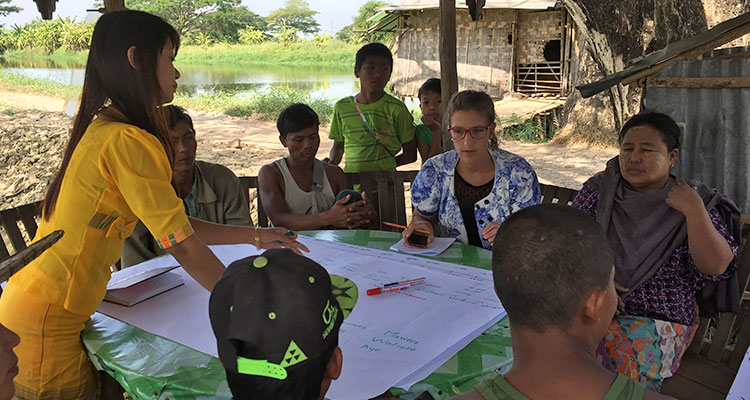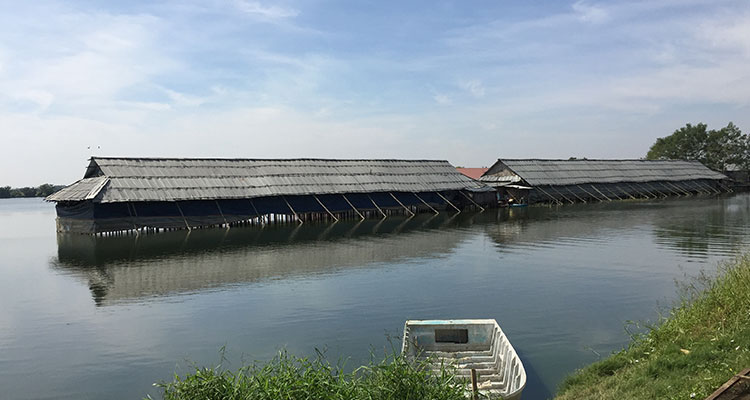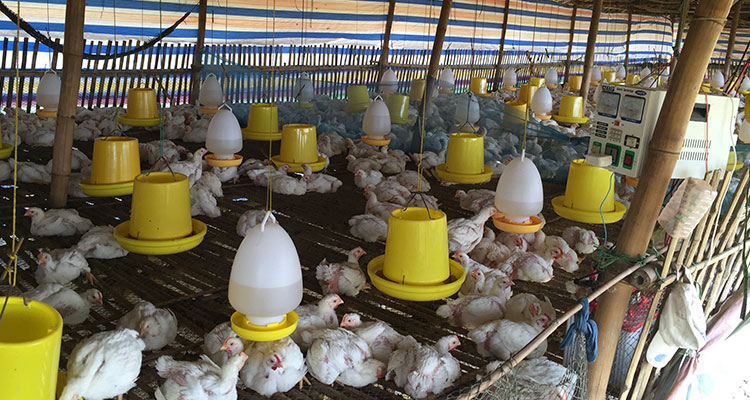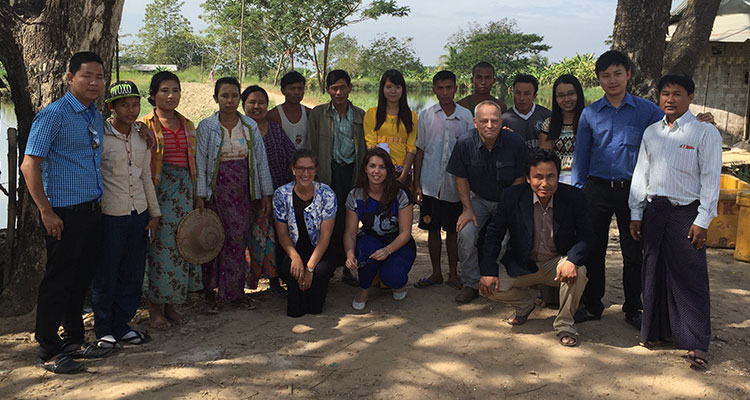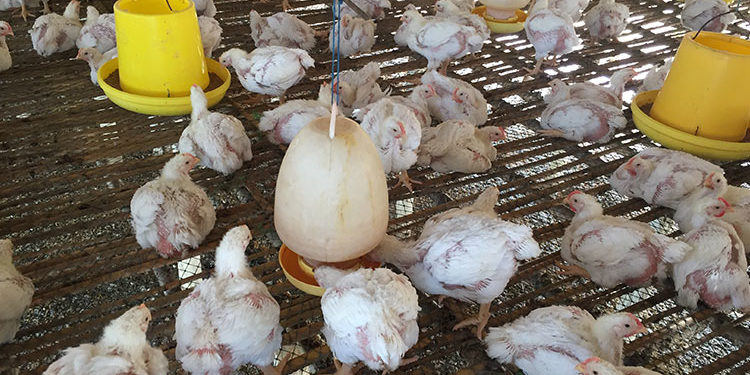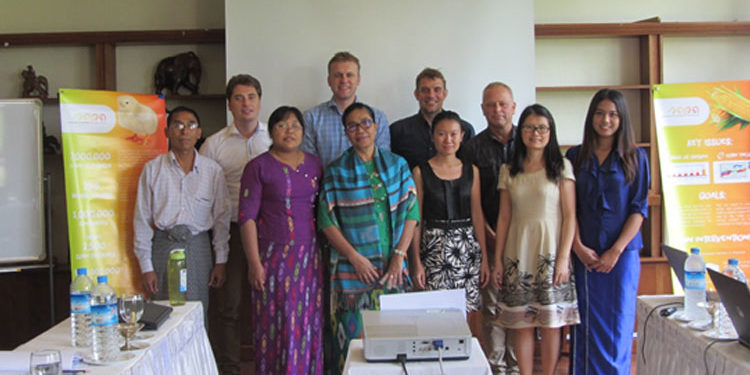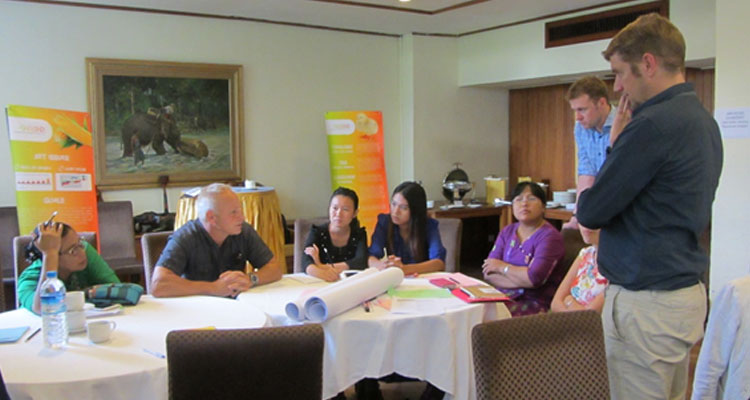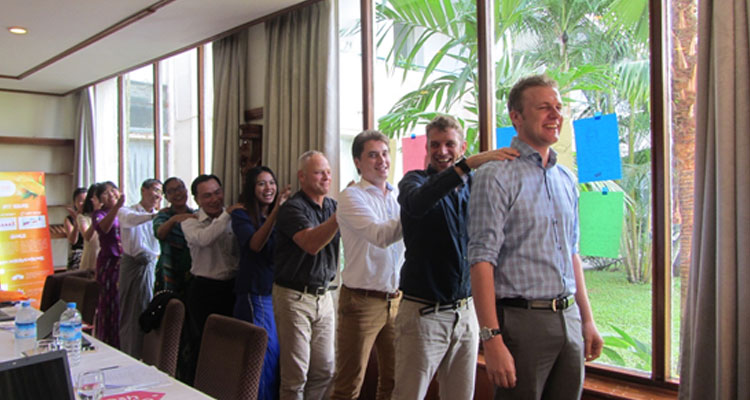Baseline study broiler farmers SAPA in Myanmar
In preparation of the implementation of the various result areas within the SAPA project a baseline study regarding both corn and broiler farmers needed to be conducted.
In the beginning of 2016 two baseline studies regarding broiler farmers took place in Myanmar. The field location of these studies were based in Yangon and Bago division and Nay Pyi Taw and Mandalay division. The teams occupied with this interesting task were composed out of different backgrounds: agricultural economists, nutritionists, poultry experts, students, Asians and Europeans. The well-known and popular Rapid Diagnostic Appraisal (RDA) method was used for this baseline-study. A RDA empowers people to analyse their own situations and challenges, show their own solutions and how they would implement these solutions. The core principles of RDA are role reversal, triangulation and optimal ignorance and appropriate imprecision.
In total 173 respondents were interviewed of which 99 broiler farmers (9 female) and 74 other broiler chain actors, such as veterinarians, DOC (Day Old Chick) suppliers, hatchery managers, feed suppliers, workers, wholesalers and retailers.
The results are translated in a baseline study report which forms the basis for the implementation of the SAPA project.
